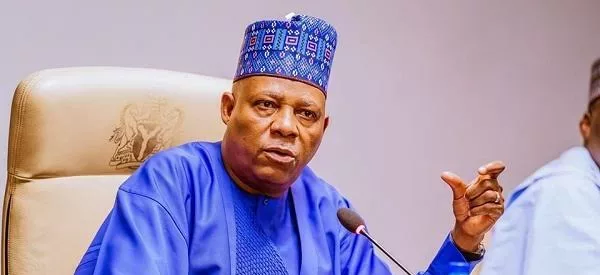The Federal Government and state governors have concluded plans to transmit a bill to the National Assembly for the formal establishment of the National Council on Skills. This is part of sweeping efforts to harmonise Nigeria’s fragmented skills development sector and tackle youth unemployment.
Kaduna State governor Uba Sani disclosed this to State House correspondents after a high-level meeting of the Council on Skills, chaired by Vice President Kashim Shettima and with the Minister of Education serving as Vice-Chairman.
Stakeholders from across the education, labour, and development sectors, alongside governors representing geopolitical zones, attended the meeting.
Governor Sani said the planned legislation aims to provide a unified legal and operational framework for skills training in Nigeria, streamlining the functions of all key players within the ecosystem.
He noted that Kaduna has become a model state in skills-based education, having benefited extensively from recent federal interventions.
“The essence of this bill is to harmonise the activities of all the major players in the skills development ecosystem,” the governor said. “Kaduna has benefited more than any other state because we align with the federal vision. We’ve admitted over 32,000 students into our skills institutions, and many of them will receive certifications under the Nigerian Skills Qualification Framework.”
He revealed that President Bola Tinubu had commissioned three federal skills development centres in Kaduna only a few months ago — one in each senatorial zone.
Sani also commended the federal government’s recent decision to integrate informal Panteka markets into the national skills framework, describing it as a strategic step in recognising indigenous innovation and craftsmanship.
On his part, the Minister of Education, Tunji Alausa, reiterated the administration’s resolve to shift from theory-based education to a skills-oriented system.
He said a revised national curriculum has been released, and six priority skills have already been integrated into junior and senior secondary school syllabuses.
These include fashion and garment making, livestock production, computer hardware repair, and GSM maintenance.
“What we are doing is evidence-based. These skills have been mapped to actual labour market needs. We’re not shooting in the dark,” the minister explained. “We’re also using data to monitor outcomes.”
According to him, over one million Nigerians have registered on the government’s online Technical and Vocational Education and Training (TVET) platform, and the first cohort of 200,000 students will commence training in the coming weeks.
The minister praised Kaduna State for leading the national registration numbers, with over 98,000 individuals signed up for skills training — the highest of any state. He also lauded Governor Sani for setting up a State Council on Skills, chaired by the governor himself, to align state-level efforts with federal strategies.
“This tells you our youth are ready. The government’s job is to meet them halfway — and we are doing just that,” he said.
Also, the Minister of State for Labour and Employment, Nkeiruka Onyejeocha, said the Council’s work would help eliminate skills mismatch and reduce the burden on the labour market.











